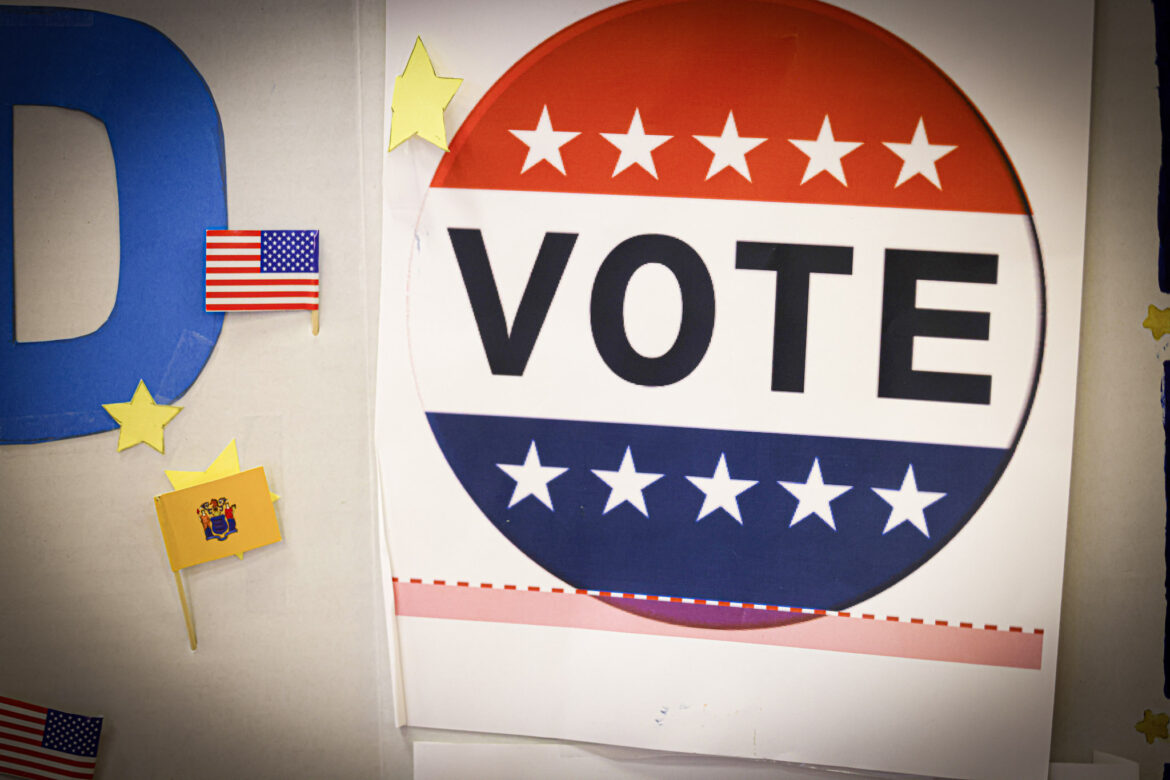Many students at Montclair State University feel disengaged from the election process, both as a result of political disillusionment and a general lack of knowledge about the gubernatorial candidates.
The gubernatorial election is right around the corner, but students at Montclair State feel that they have been left adrift and uninformed. Faced with the responsibility of leading the charge in the fight for positive societal change and representing the interests of Generation Z, some students feel unfit to take up the task — not solely due to a lack of interest or empathy, but a lack of resources.
Some Montclair State students, like freshman economics major Emmanel-Salvator Tatlonghari, said that they feel uninformed about the upcoming gubernatorial election.
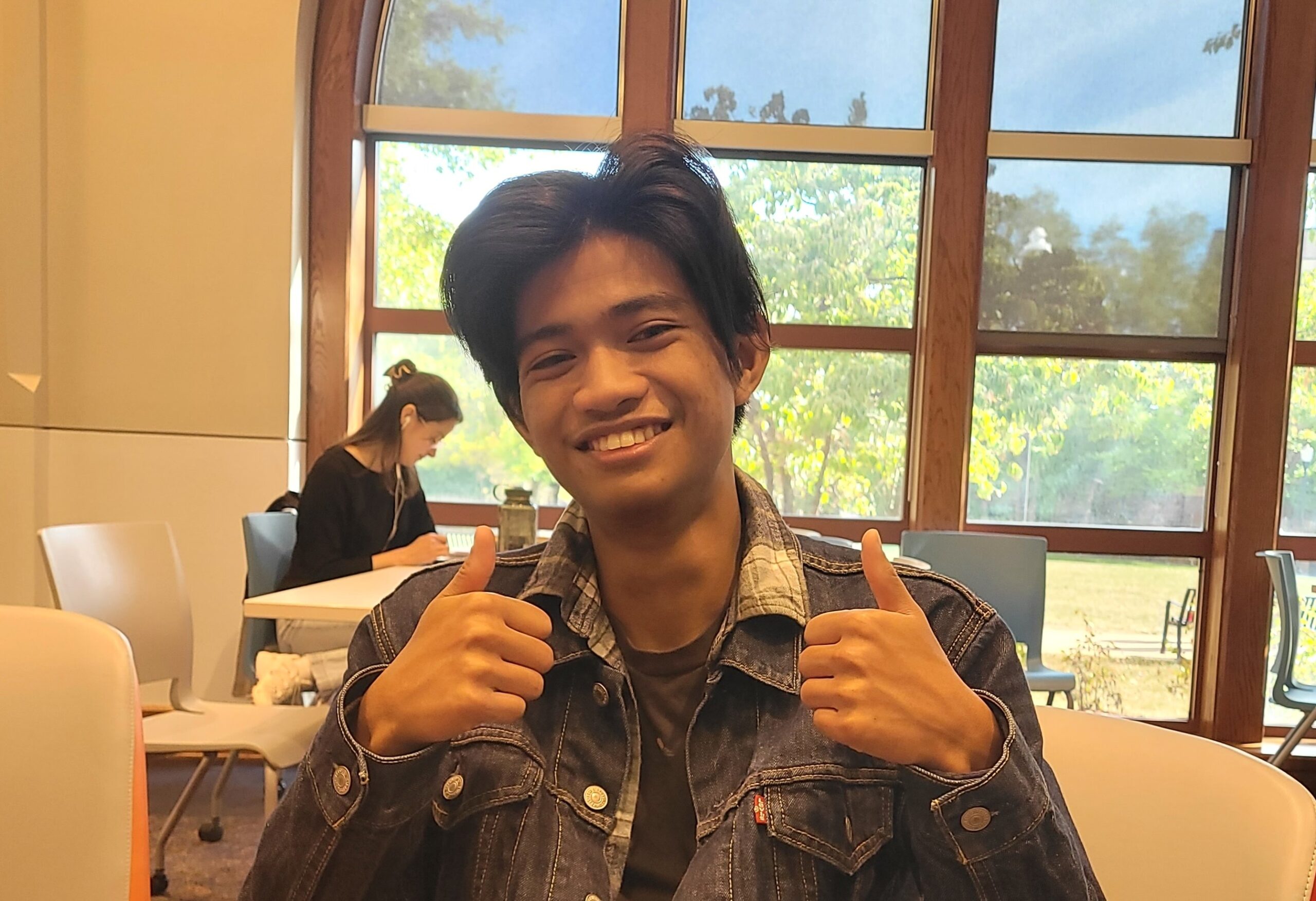
Freshman economics major Emmanel-Salvator Tatlonghari. Julisa Williams | The Montclarion
“It’s like, I’ve never heard of like those [candidates],” said Tatlonghari, who also noted that he understands the stakes of this election. “They’re never advertised to me. Even if you Google it, there’s barely any [information].”
Data from Tufts University’s Center for Information & Research on Civic Learning and Engagement (CIRCLE) shows that only 20% of young voters in New Jersey participated in the 2021 gubernatorial election, while 47% of young voters participated in the 2024 presidential election. While presidential elections dictate federal and international policy more drastically, gubernatorial and local elections have a more significant effect on the day-to-day lives of New Jersey residents.
“We are the youngest generation, so we basically kind of dictate the future,” Tatlonghari said. “So voting is usually the way we bring change to a state.”
Many students want to be informed, but the lack of advertising to them creates a rift between getting students to vote and the candidates. While some students express a desire to be informed, others point to a broader indifference toward local elections.
Michael Unger, a senior history major, expressed a broadly-shared sentiment, that college students “just don’t really care” about local elections.
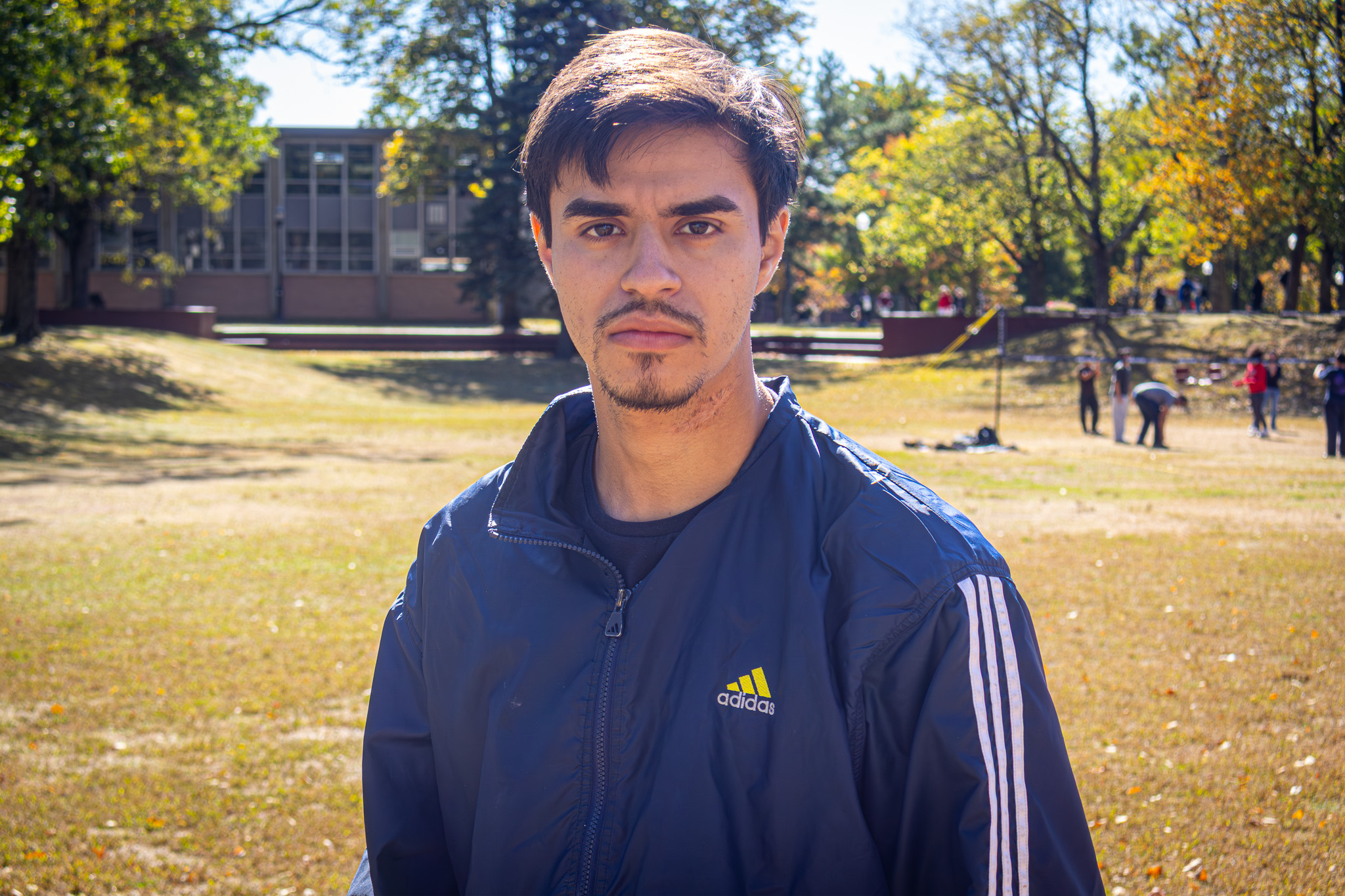
Michael Unger, senior history major at Montclair State. David Bien-Aime┃The Montclarion
“There’s definitely more consideration for the presidential elections,” Unger elaborated.
Students are an important demographic in elections and the disconnect is worrying. Even if these students are registered voters, if they are unaware of what is going on in their state, the sentiment of registration is rendered meaningless.
But this disconnect is not lost on campus leaders. Warren Rigby, the Coordinator for Voter and Civic Engagement, sees firsthand how strategic outreach, or lack thereof, shapes student participation.
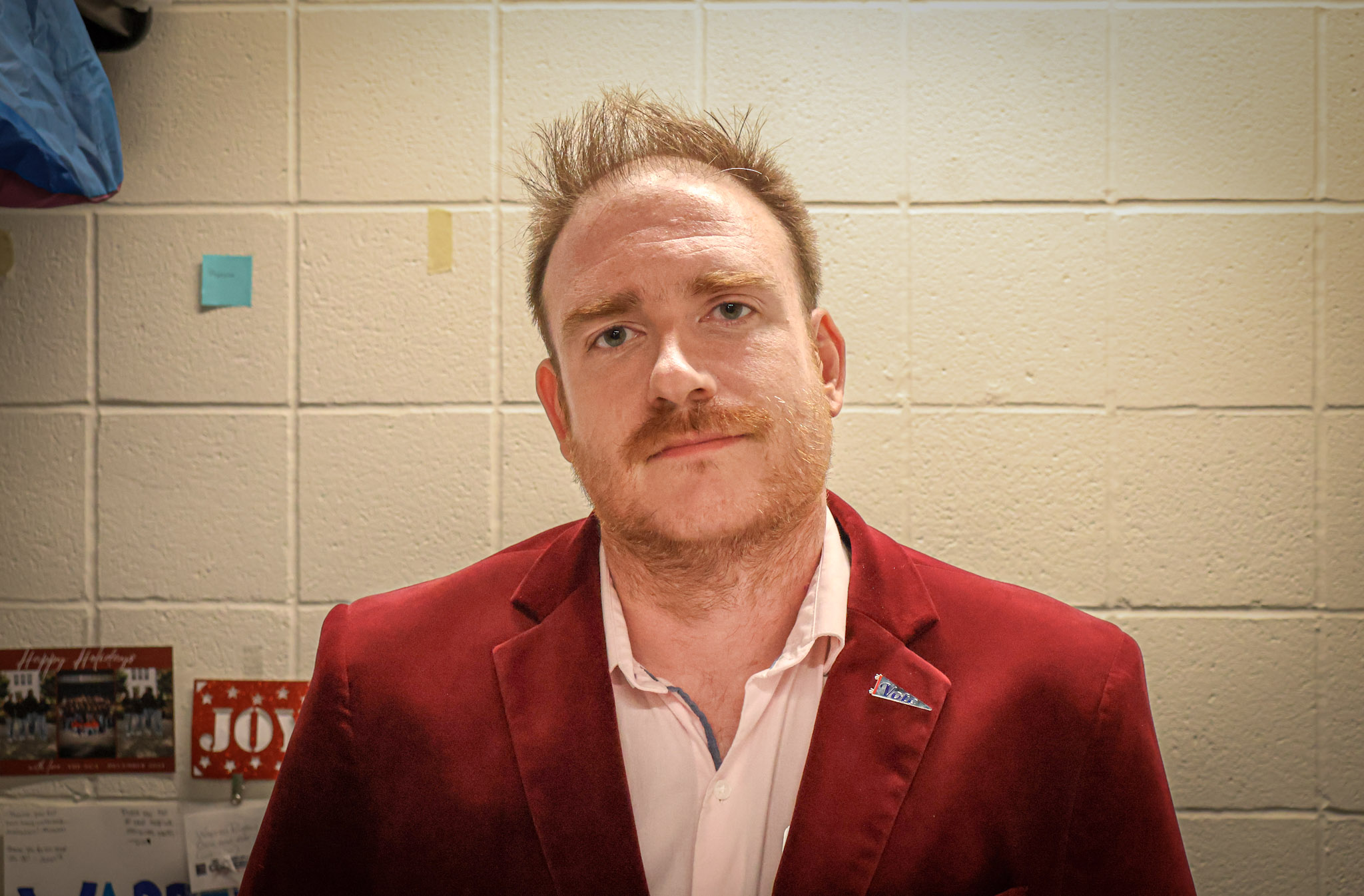
Warren Rigby, the Coordinator for Voter and Civic Engagement, sees firsthand how strategic outreach, or lack thereof, shapes student participation. Hope Chang | The Montclarion
“If we present them with information that does directly affect them,” Rigby said. “I think that the impact of it is significantly greater.”
Rigby also stresses neutrality, highlighting another overlooked barrier: Fear. For many students, politics feel like a minefield—one misstep, one misunderstood opinion and they risk being judged or alienated. “I think that we really need to do a better job, but it also needs to be a full rounded circle, right? It can’t just be from one perspective.”
Freshman social media and public relations major Natalie Delgado points to societal pressures as a reason why certain members of Generation Z may be less politically outspoken.
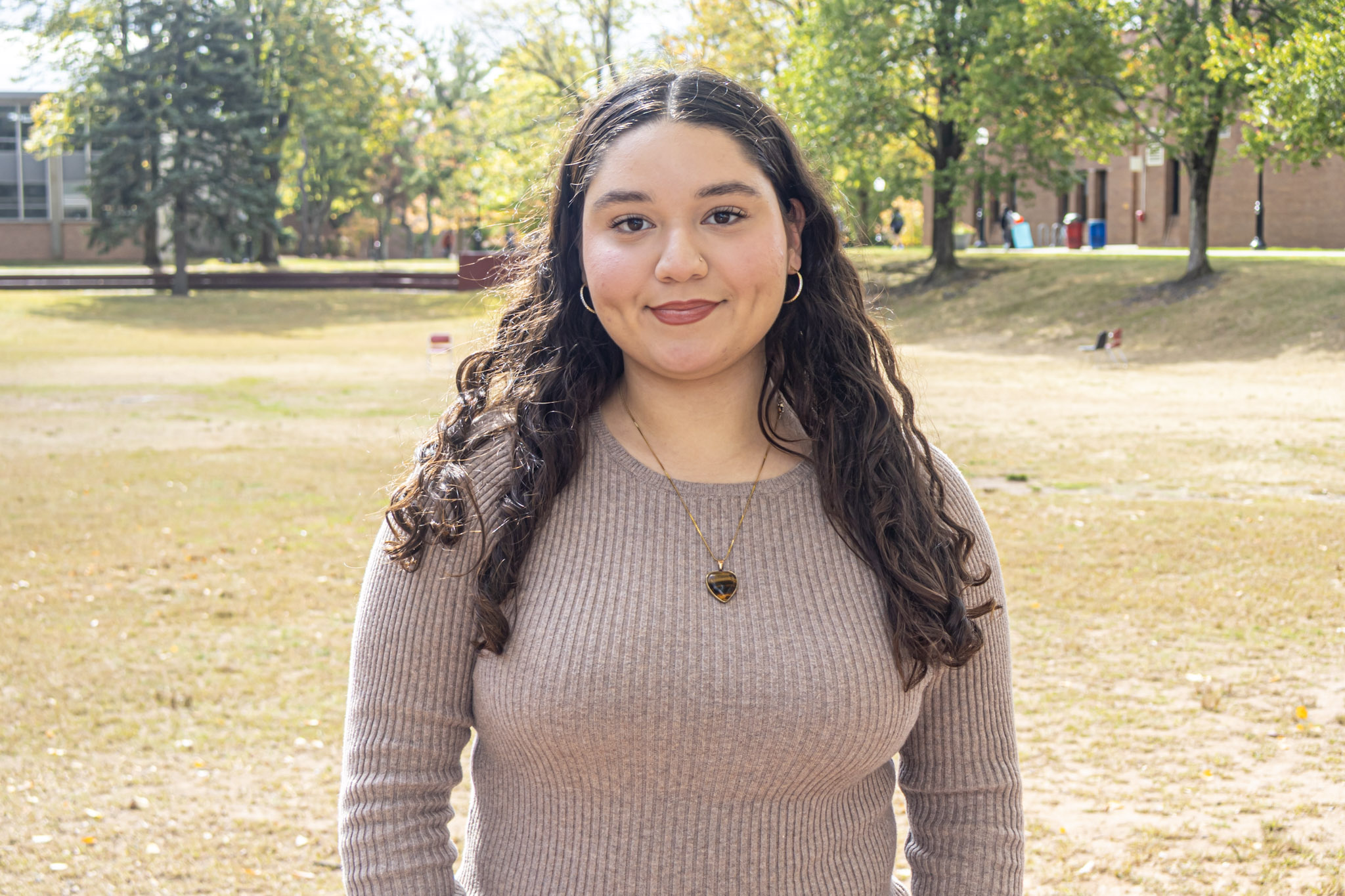
Freshman social media and public relations major, Natalie Delgado. David Bien-Aime | The Montclarion
“I think a lot of people are scared to say their political opinion, because, you know, they’re afraid of being judged,” Delgado explained. This sense of fear among college students and young voters, she elaborated, is a reflection of the modern political climate. “You have one side that has a lot to say, but if you’re not hearing the other side and listening, how can you expect to be listened to?”
Despite this ongoing fear, it’s clear to students that Montclair State is pushing the effort.
“I mean, I saw a couple people with clipboards asking around if they were like registered voters,” Unger recalled. “I think [Montclair State] is doing a good job with getting it out there,”
What students need foremost is a place to express political ideas freely without fear of ridicule, even amidst the current climate. For students to feel important, they need to feel heard.

